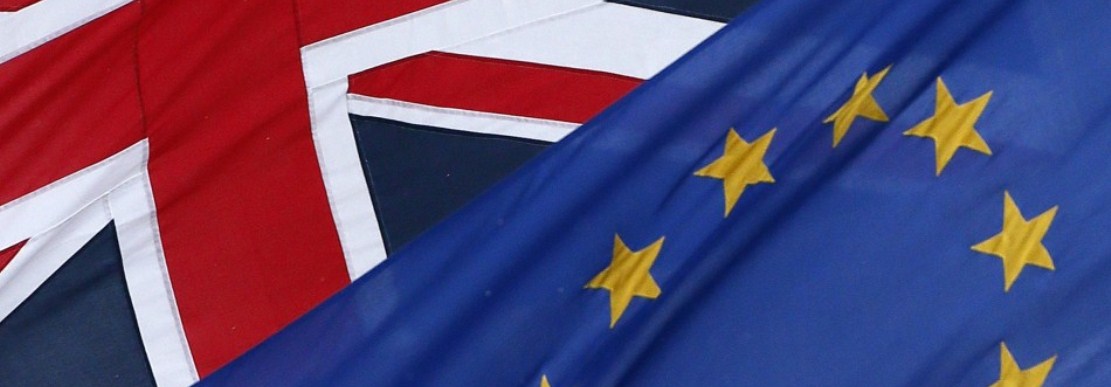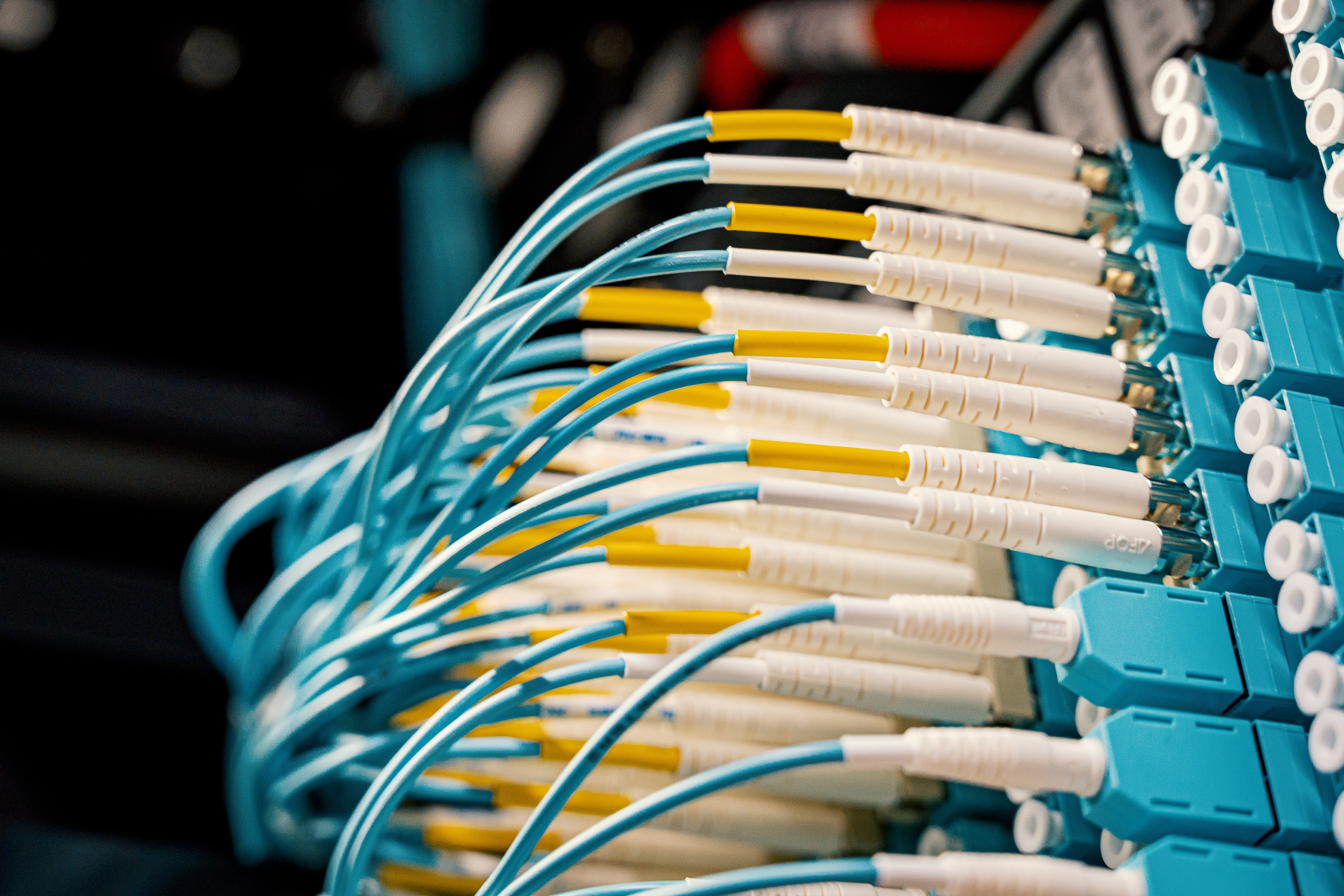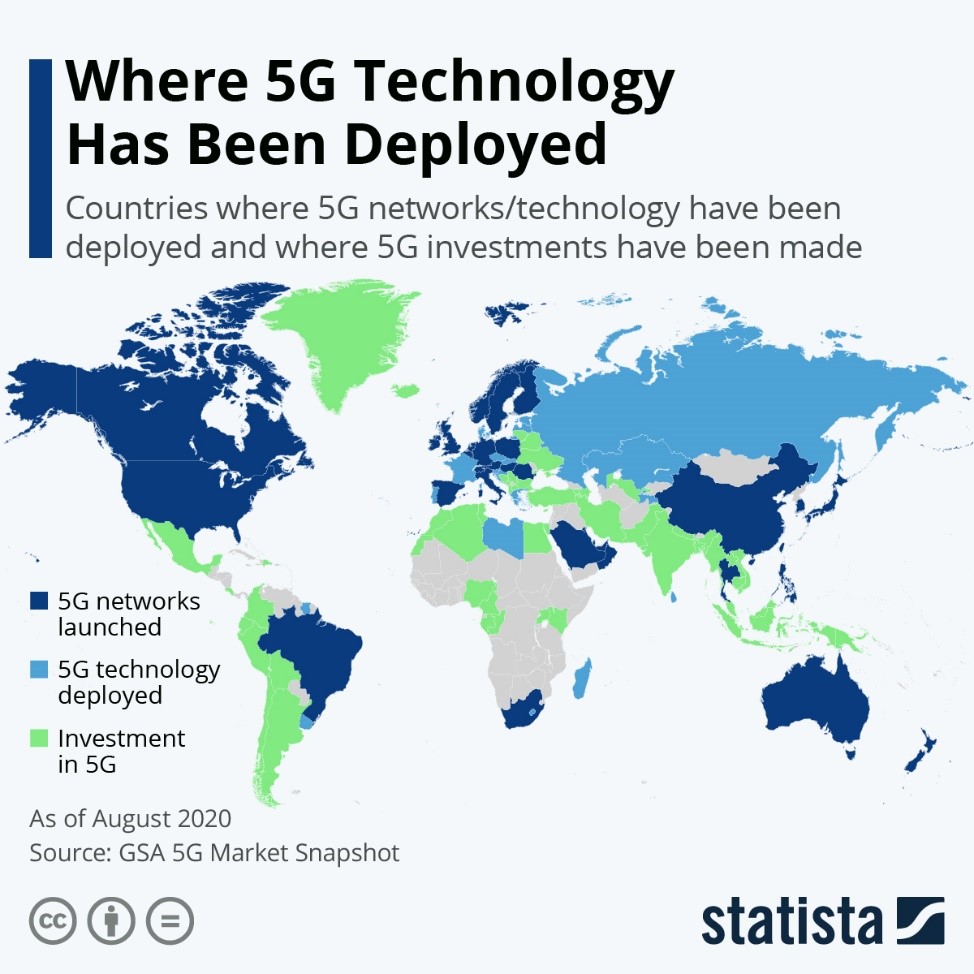By Christina Mackay, Strategic Investment Director at InEn Consultancy & LLM student in International Law at the Brussels School of International Studies
What is 5G?
In the 2000’s, 2G became 3G and a decade ago, 3G became 4G. 5G rollout was hoped for 2020 across the EU, but there have been some political stumbling blocks. 4G provided better speeds, better bandwidth and gave consumers better internet and enabled proper mobile data. 5G is more than just an improvement. Imagine a house, 3G to 4G was redecorating a house after 10 years. 4G to 5G is smashing down the house and rebuilding it from scratch. 5G operates at higher frequencies, it will be much faster than 4G and will provide a greater range of mobile applications enabling smart homes, smart cities, quantum computing, driverless cars and much more. 5G will revolutionise our healthcare by enabling technology to provide enhanced diagnostics and enable robotic surgeons. All industries will be transformed. We need 5G in order to be prosperous, and we need it as soon as possible.
5G will require a different infrastructure. Installing lots of antennas around European cities should not be a problem and should quickly pay for itself; rural areas may be more of a challenge and some rural areas will not receive 5G for a decade or more.
When will 5G arrive?
Huawei, a Chinese company, is leading the way for 5G technology. Huawei is already part of our 5G network. It also forms substantial parts of our 3G, 4G and broadband networks too. Huawei has been with us for almost two decades.
Some of the hardware has started to be installed in some cities. According to Samsung UK, 5G infrastructure was on track to be with us in two years, with cities such as London and other European Capitals being early adopters. However, recent political disputes have changed this timescale.
What are the concerns?
The Chinese Government has a strong control over most private companies in China, including Huawei. For the last two decades the Chinese Government have carried out IP theft and subsidises Chinese companies so that they can price out competition. In addition, China uses telecoms as a lever for negotiations during its belt and road initiatives. This makes Western countries nervous as China’s political strength continues to grow as a world leader.
What are the mitigations / management?
Huawei’s market share is capped at 35% in the UK. This will be similar across the EU. New regulation and legislation have been introduced. The UK and European cities are striving for market diversification. Although Huawei leads the pack in 5G technology, Ericsson (Swedish company), Nokia (Finnish company) and US vendors are close behind.
Has there been political intervention?
In 2020, the US banned Huawei from operating in the US in the name of national security. The US encouraged other nations including the UK to also ban Huawei. The UK disagreed with the US and decided that Huawei had been investigated and no evidence had been found to prove that there were substantial risks to national security. The UK decided to move ahead. However, the US then took further action against Huawei. The US banned the export of US chips to China that Huawei used. This was part of the trade and tariff war that President Trump had initiated in 2020. Huawei now requires a major change of its supply chain.
Now the UK and EU cities will need to remove Huawei equipment from existing networks. This will cost millions (mostly taxpayers money) and it will take years for existing telecoms companies to de-install Huawei equipment and replace it with home grown solutions. Even non-5G equipment, such as optical fibres which have increased internet speeds while also being cheap for the consumer to use, will have to be removed if they use Huawei technology.
Who is being left behind?
As we can see from the map below, Africa is being left behind in this technological revolution. Historically, Africa has achieved technological ‘jumps’ for example some areas never received land line phones, but they did receive mobile phones. However, given the immense infrastructure required for 5G I fear that Africa will not be able to catch up. This will mean their innovation, education, healthcare, and all forms of technology will fall further behind developed nations. Perhaps developed nations should start moving toward a charitable movement of building Africa’s 5G infrastructure in parallel to their own for the purpose of fairness, peace, and security.


